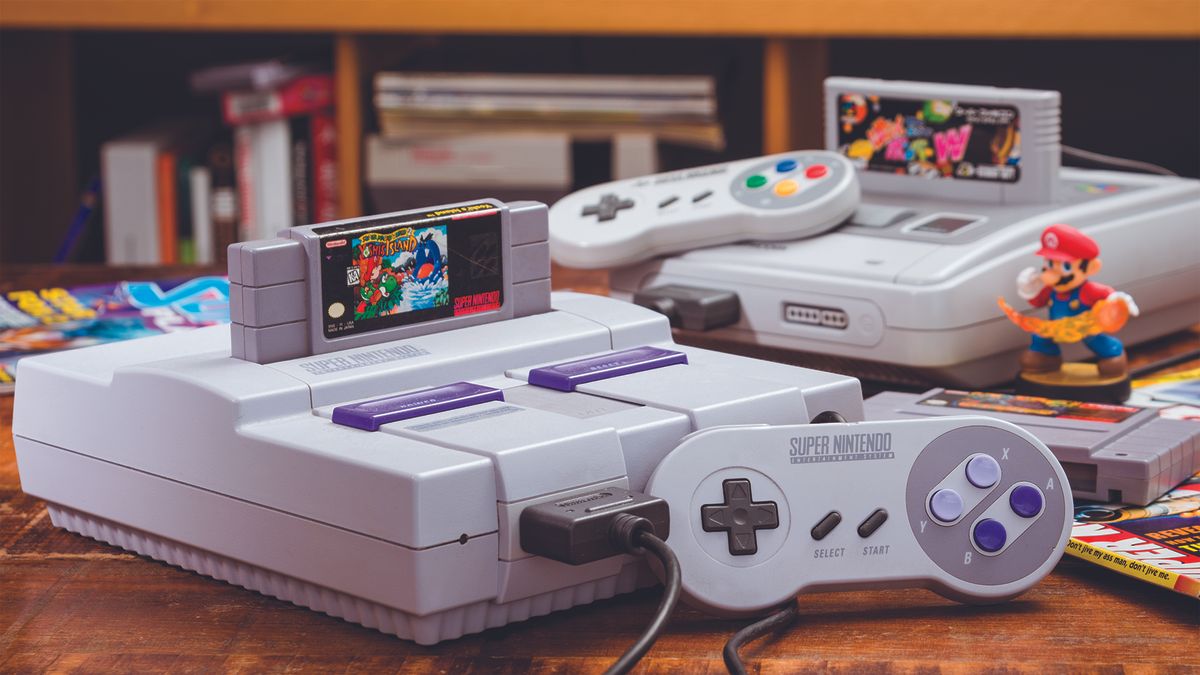Shigeru Miyamoto wanted the SNES to be an indie powerhouse a full 10 years ahead of its time
Nintendo could've beaten the Xbox 360 to that whole console indie gaming thing

A recently translated interview with Shigeru Miyamoto has shed some light on Nintendo's plans to make a major SNES peripheral a haven for indie devs - a full decade before indie gaming on consoles would become a proper reality.
That peripheral was the Satellaview, a satellite modem for the SNES's Japanese equivalent, the Super Famicom. The Satellaview would essentially let you download games and other media to your console through satellite broadcasts, making you tune in at certain times to get the latest entry in a given series. The peripheral was successful enough for these broadcasts to run for several years in Japan, and with much of that content seemingly lost to time, gaming preservationists and historians have been digging deep to save everything they can of the Satellaview's legacy.
It seems Nintendo had even bigger plans in mind for the Satellaview. In a 1995 interview recently translated by Time Extension, Shigeru Miyamoto said that "Satellaview offers us the possibility to distribute content for free that might otherwise be difficult to sell. Something like that would incur a high cost if we were to try to sell it on the current cartridge standard, but if we only had to send the data, distribution becomes much more doable." That kind of consideration is exactly what led to the dual rise of digital distribution and indie gaming in the Xbox 360 and PS3 generation.
"Consider also a situation where a student brings in a piece of software, something we can't sell for 8,000 yen," Miyamoto said. "If the creator were to consent to distribution, we could theoretically have 100,000 people playing their game. There are many opportunities for that sort of thing to happen with Satellaview. There were also some cases in which developers produced software for the Super Famicom that wouldn't have been profitable to be sold on cartridges, but they wanted people to play the games so badly (laughs). With their permission, we could distribute that kind of content, too."
Nintendo wouldn't properly start distributing indie games until the Wii, but the company's aspirations to help independent, student, and hobbyist devs create and distribute software in the '90s took other forms, too. In 1994, Nintendo filed a US patent for something called the Nintendo Game Processor, which would've essentially been a PC with SNES-style controller ports designed to let you make your own Nintendo games. The patent also detailed a piece of software called Mario Factory, which basically looks like a prototypical version of Super Mario Maker.
While that device never made it to the general public, there is some evidence that Nintendo distributed something similar to Japanese schools. Super Famicom cartridges labeled as Game Processor RAM Cassettes have occasionally made their way to places like eBay containing remnants of what appear to be student games made on the platform.
All of these efforts were well ahead of their time, and the interview with Miyamoto is even more fascinating today than it probably would've been back in the '90s. I'm trying to imagine a world where indie devs had a platform to widely distribute their games a decade earlier - I guess it might look a lot like an early version of the SNES homebrew scene we have today.
Sign up to the 12DOVE Newsletter
Weekly digests, tales from the communities you love, and more
These are the best SNES games of all time.

Dustin Bailey joined the GamesRadar team as a Staff Writer in May 2022, and is currently based in Missouri. He's been covering games (with occasional dalliances in the worlds of anime and pro wrestling) since 2015, first as a freelancer, then as a news writer at PCGamesN for nearly five years. His love for games was sparked somewhere between Metal Gear Solid 2 and Knights of the Old Republic, and these days you can usually find him splitting his entertainment time between retro gaming, the latest big action-adventure title, or a long haul in American Truck Simulator.
Most Popular

